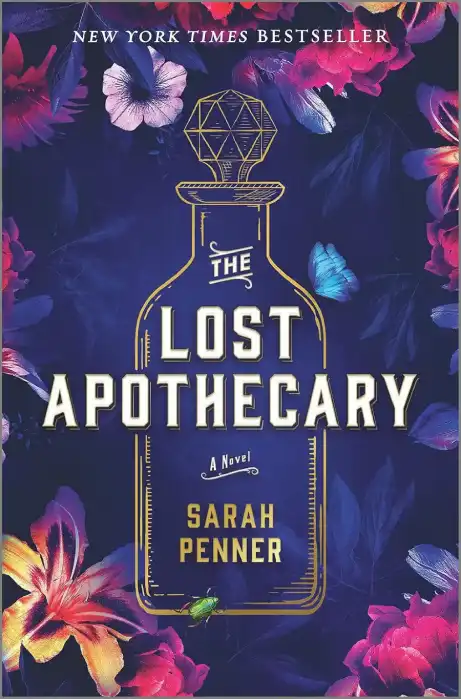Physical Address
304 North Cardinal St.
Dorchester Center, MA 02124
Physical Address
304 North Cardinal St.
Dorchester Center, MA 02124

By Sarah Penner
The Lost Apothecary by Sarah Penner is a historical fiction novel that delicately balances two intertwined storylines, one set in 18th-century London, the other in modern-day England. At first glance, it may seem like a tale about poisons. But dig deeper, and you’ll find it’s really about the choices women make visible and hidden, and how those decisions echo through time.
In the 1700s, we meet Nella, a solitary apothecary who secretly supplies poisons to women seeking justice or freedom in a patriarchal society. She lives by strict rules, driven by grief and guilt from her past. But her world begins to shift when a clever 12-year-old girl named Eliza walks into her hidden shop.
Fast forward to the present day, where Caroline, an American tourist in London, is dealing with personal upheaval. After discovering a mysterious vial in the River Thames, she’s drawn into a historical mystery that connects her to Nella’s apothecary and the secrets it held.
Unlike traditional thrillers that thrive on twists and cliffhangers, The Lost Apothecary leans into emotional depth and gradual discovery. Its strength lies not in action, but in character development and reflective moments. The pacing is slow but deliberate, encouraging the reader to sit with the characters and absorb their quiet struggles.
What worked exceptionally well for me was the rhythm of the narrative. It never rushed. The book gave space to the internal worlds of its characters, letting emotions simmer. Some chapters made me stop and reflect. Others built a subtle tension that crept up unexpectedly.
Sarah Penner’s prose is clear, elegant, and immersive, and she skillfully juggles the dual timeline structure. Neither storyline feels secondary, they both complement and enrich one another.
Several recurring themes run through The Lost Apothecary, including:
Perhaps most powerful is how Penner portrays resistance not as dramatic rebellion, but as a series of quiet decisions that shape lives. Whether it’s Nella’s risky help to women in need or Caroline’s choice to pursue a new path, these moments reveal strength in subtlety.
If you enjoy character-driven stories with historical backdrops, emotional depth, and slow-building narratives, The Lost Apothecary will likely resonate with you. It’s not full of shocking twists, but it’s full of meaning. And for me, that’s often the kind of book that lingers longest.
It’s a novel about how women navigate societal constraints, how they protect one another, and how even centuries apart, their choices can echo with surprising clarity.
Have you read The Lost Apothecary? What parts resonated with you the most?
Do you have other favorite historical fiction novels that explore similar themes of secret strength and personal transformation?
Drop your thoughts in the comments, I’d love to hear from you.